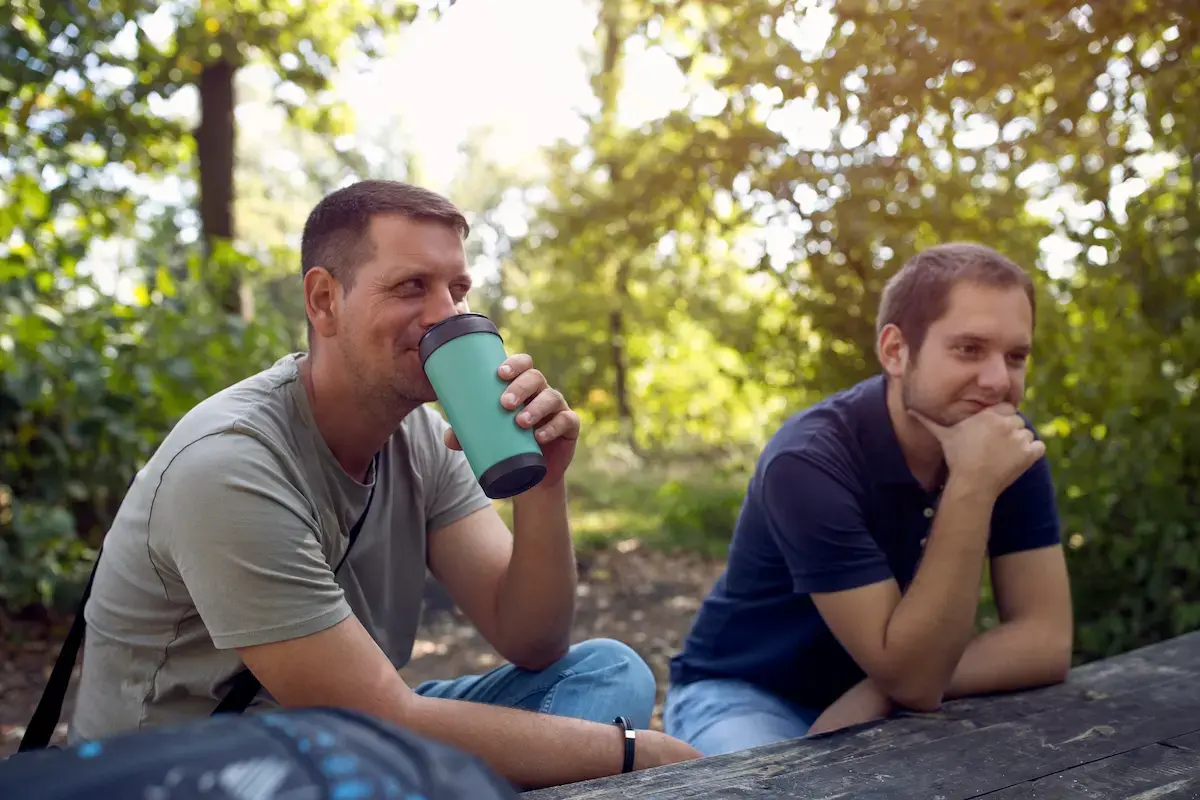Recovery is more than breaking free from addiction; it’s about reclaiming a healthier, more balanced life. Wellness in addiction recovery plays a crucial role when the focus is on rebuilding one’s physical, mental, and emotional well-being. Staying sober is not the only solution. Growing and thriving in every aspect of life is also important.
By prioritizing holistic wellness, you can create a strong foundation for lasting recovery. That will help you rediscover purpose, joy, and inner peace. To help you gain valuable insights, today, we’ll explore the different dimensions of wellness and how they can support your journey to a more fulfilling life.
What Is Wellness?
The first thing to understand is that wellness is more than simply feeling good. Global Wellness Institute (GWI) expresses that it’s about actively making choices that support a balanced, healthy life. Unlike general health, happiness, or wellbeing, wellness is something you pursue each day.
Consider this: You’re choosing a morning walk over an extra hour of sleep or opting for a nutritious meal, keeping aside fast food. These are small steps toward wellness. The absence of illness is one thing, but what matters most is the presence of positive habits that nourish your mind, body, and spirit. Trying out different hobbies, managing stress, or connecting with others—wellness means making mindful decisions that enrich your overall well-being.
The 8 Kinds of Wellness in Addiction Recovery
To a life free of addiction, wellness in recovery is the backbone. Commitment to a drug-free lifestyle and taking care of every part of yourself are complementary goals. As you target different wellness areas—like physical health, emotional stability, and social connections—you may easily lay the groundwork for a full recovery.
Let’s explore wellness’s eight dimensions that are key to supporting a holistic, resilient recovery journey.
1. Physical Wellness
Staying healthy and being free from illness is not enough when recovering from addiction. Getting rid of substance use and caring for your body fully is the way to physical wellness. Small steps add up:
- Choose whole foods that give you energy and strength; maintain a balanced diet.
- A short daily walk or stretching can boost your mood and fitness.
- Give priority to proper sleep to recharge and handle pressure.
- Keep up with hygiene, enjoy safe sex, and go for regular health check-ups.
- Don’t get into situations that put your body under unnecessary stress.
Valuing your body means investing in your future well-being. Following these tips can help you feel stronger, more stable, and ready to take on each day in recovery.

2. Emotional Wellness
Emotional wellness is all about understanding and managing your feelings in a healthy way. It’s normal to feel overwhelmed, especially in addiction recovery. But what can make all the difference is finding positive ways to cope. Think of it as learning to ride the waves rather than being pulled under. Here are a few steps to build emotional strength:
- Name what you’re feeling—anger, sadness, joy. It’s okay to feel them all.
- Journaling, deep breathing, or talking to someone you trust can help process challenging emotions and enhance your coping skills.
- Protect your emotional health and space by saying no when needed.
- Practice kindness to yourself and those around you.
Using drug and alcohol may often seem like the solution during difficult emotional states filled with negative thoughts. But they cause extreme harm, as we all know. You need to care about all of your emotions and practice the right behaviors to overcome tough situations.
3. Spiritual Wellness
Finding purpose and meaning in life—that is the spiritual dimension of wellness. It’s not confined to spirituality or religion; it’s more about personal values and understanding your place in the world.
Spiritual wellness helps you explore what gives your life meaning and how you connect with others and yourself. Here’s how to nurture it:
- Identify what matters most to you and live by those principles.
- Give respect to your own life and the lives of others.
- Reflect on how you’re serving the world and find value in your actions.
Always remember that being spiritually sound makes you feel grounded and connected.
4. Social Wellness
The quality of your relationships and your place in the community are defined by social wellness. For those in recovery from substance use disorder, it’s important to recreate and maintain meaningful connections. Consider these steps:
- Surround yourself with positive influences who understand your journey, like family members and close friends.
- Don’t isolate yourself; connect with friends or support groups.
- Must avoid environments that might tempt relapse.
- Always initiate healthy interactions and try to manage conflicts with calmness.
Healthy and positive social connections enrich your whole recovery process; after all, humans are social beings!
5. Financial Wellness
In simple terms, financial wellness means feeling secure and confident with money. Paying bills is only one part of it. You need to manage your money in a way that supports your recovery and well-being. Here’s how to start:
- Employment helps you get into a routine and build self-esteem.
- Paying on time means reduced stress and zero debt!
- Accurately plan your expenses so you don’t face any financial strain.
- Find healthy outlets for anxiety and tension instead of shopping.
When you develop a positive relationship with money, you find more peace and can achieve a firm base for overall wellness.

6. Intellectual Wellness
Intellectual wellness means keeping your mind engaged and curious. It’s about looking out for and getting into activities that challenge and inspire you. There’s always a risk of relapse if you’re feeling bored or unfulfilled. Then again, there are many ways to nurture your intellect:
- Learn something new, like painting or cooking.
- Get admission to college for skill development.
- Read a book with a topic that interests you.
- Join a discussion group and share ideas with others.
- Volunteering helps big time; try teaching or helping in your community.
As long as you are mentally active, it will boost your confidence and joy and give you hope for complete rejuvenation.
7. Environmental Wellness
Environmental wellness is about how your surroundings impact your well-being. Living in a clean, safe space can make a world of difference. For some, this means decluttering their home. For you, it can also be about creating a peaceful spot to relax. Here are a few steps to improve your environment:
- Properly clean and organize your space, as it can ease emotional strain.
- You can add greenery because plants can uplift your mood.
- Avoid toxic environments and seek spaces that support your recovery.
Your surroundings should nurture your mind and body, and it’s a vital part of recovery from substance abuse. Think about how small changes—like adding a cozy chair or moving to a quieter neighborhood—can improve your well-being.
8. Occupational Wellness
You have a job, but if you are not finding pleasure and satisfaction there, then it’s clearly not working. It’s tough to stay motivated when working 40 hours a week for a role that feels draining. Occupational wellness is achieved when you are earning from a job that encourages and inspires you to grow. You can:
- Pursue a career that matches your values and passion.
- Leave an unhealthy job for a more supportive environment.
- Learn new skills for a desired profession.
The aim is to establish a work-life balance that invigorates you and benefits your overall wellness.
Summing Up on Wellness in Recovery
Wellness practices support the recovery journey by preaching many aspects of well-being that addiction can disrupt. Wellness isn’t about being perfect; it’s about making small, positive changes that add up over time. So, whether it’s joining a support group, exploring new hobbies, or simply eating healthier, each step you take matters. What also matters is that you acknowledge all of the eight dimensions of wellness.
For more info check out The Retreat, they welcome you with open arms to the beautiful path of recovery from addiction. The sessions and programs at their center fully prioritize all aspects of your well-being. Visit them and experience the transformative power of health and wellness in achieving a worry-free, fulfilling, and sober life.



